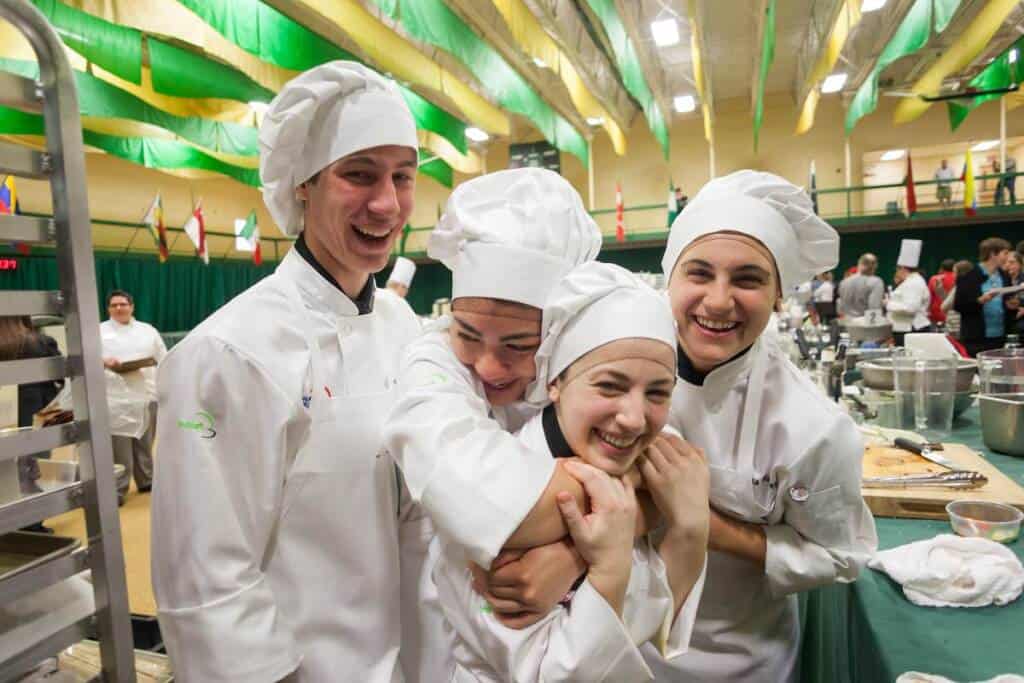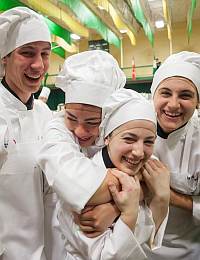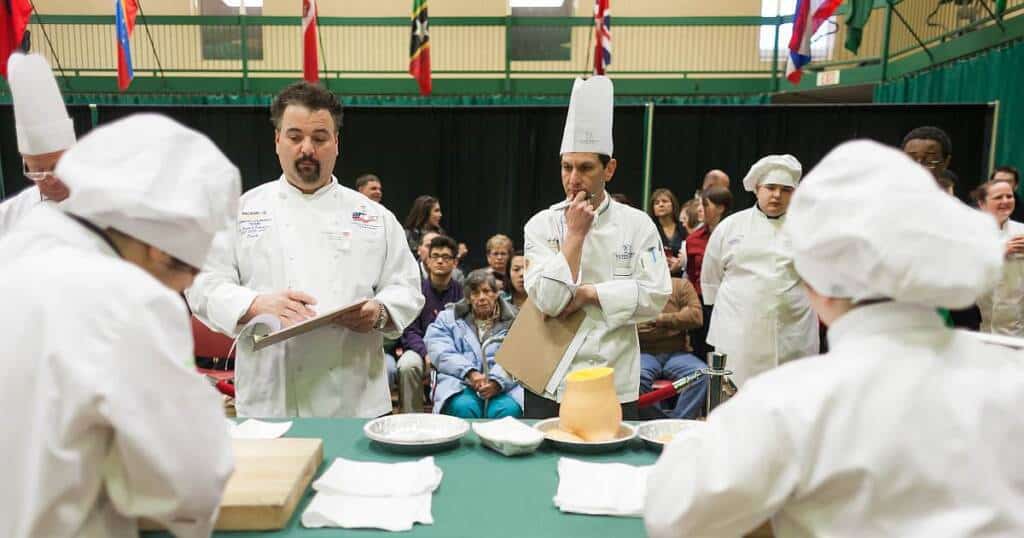
For young culinarians, the crisp late-winter air can mean only one thing: the high school culinary and hospitality competition season is here! From ProStart and C-CAP to SkillsUSA, NAACP, FCCLA, and everything in between, students and educators from all over the nation come together to throw down their culinary, baking, restaurant service, and business savvy to determine who will be this year’s champions.
Here at the CIA, as we prepare to once again host the New York State ProStart Invitational competition, we got to thinking, “What are the things that turn competitors into champions?” and “What is it that really separates the winning teams and individuals from the rest of the pack—not just in the competitive arena, but also the college setting, and, ultimately, their careers?”
To answer these questions, we turned to some of the people who know competition season better than most: the CIA faculty. We polled faculty members who have judged, participated in, and mentored competitors throughout countless competitions to find out just what the keys to success are. Here are their top five tips:
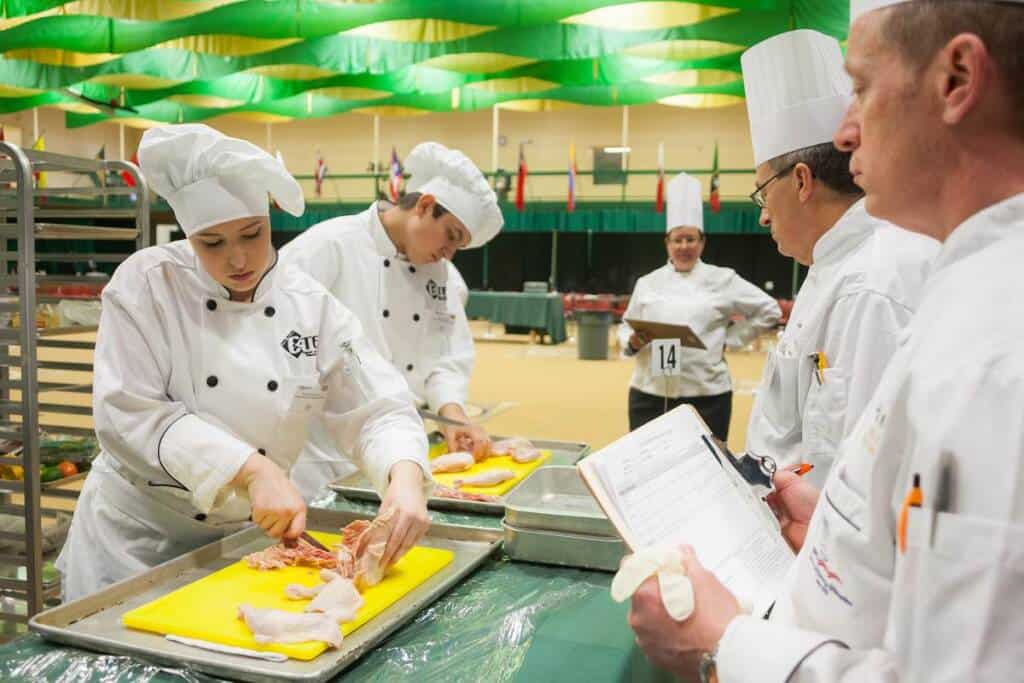
#1: Preparation
Seems simple, right? Preparation is the foundation for just about everything. But the goal in preparation, Professor of Culinary Arts David McCue says, is to “practice so much that your body knows what you are doing, even if your mind doesn’t.” This approach will allow muscle memory to take over when the lights are the brightest and the nerves at their highest.
Preparation also means clearly understanding what you are doing versus simply memorizing the motions. According to Culinary Fundamentals instructor and SkillsUSA mentor Lance Nitahara, “The key is to clone the competition during your training. Your training sessions should mirror the competition to a ‘T,’ down to the work space, equipment, and appliances that are available.” This will ensure the quality of your preparation and help competitors develop consistency and a true understanding of the competition in front of them.
In addition, the preparation process should include “seeking out critical feedback from as many professionals as possible,” says Senior Associate Dean of Culinary Arts Bruce Mattel. It’s not enough to just practice and know what you are doing. Having genuine and objective criticism allows individuals and teams to assess and grow during the competition process. Chef Nitahara stresses the importance of “taking detailed notes on critiques of execution and food tasting. Verbal notes are never sufficient and get forgotten in the shuffle.”
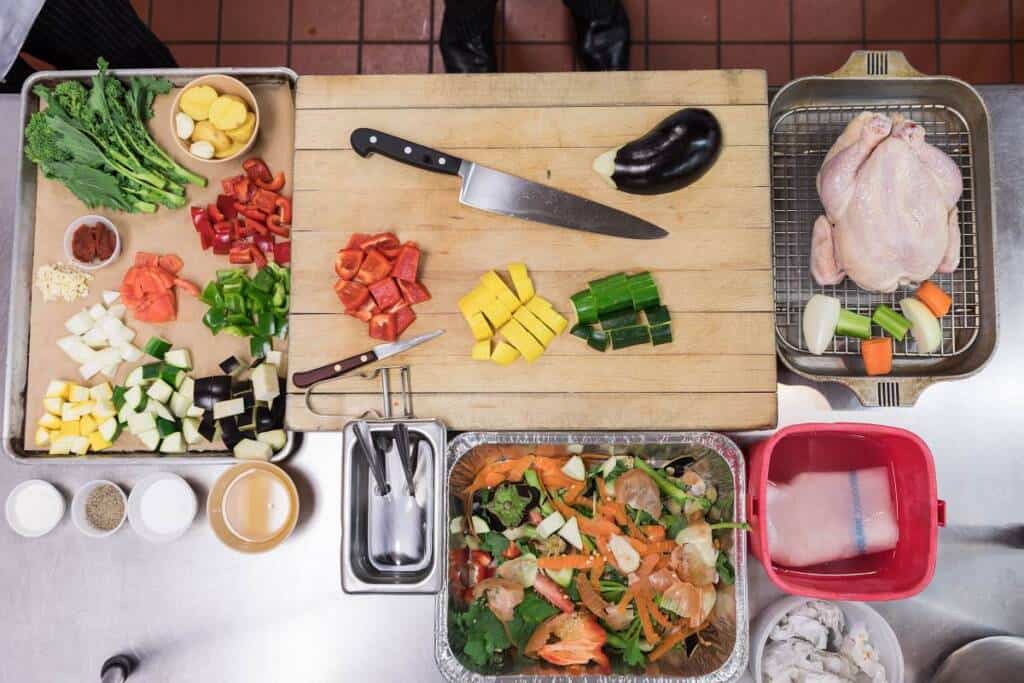
#2 Stay Organized
Proper preparation will help significantly with this, but organization should be a primary focus of the training. This does not simply mean having all of your ingredients measured out and all of your equipment in the right place. Mental mise en place is just as crucial as your physical mise en place. Culinary Arts Professor Paul DelleRose says that students and competitors “do not spend enough time cooking in their head first, going over their mental mise en place over and over again in preparation.” Chef DelleRose explained further that this approach helps students minimize mistakes and gives them a much stronger understanding of what they are doing, not just as it relates to competition day, but to their education and careers as well.
Staying organized also includes your performance during the competition, as you are presenting or cooking. Having a visually clean and organized station or presentation will not only impress the judges but, more important, it will help you maintain composure throughout the competition.
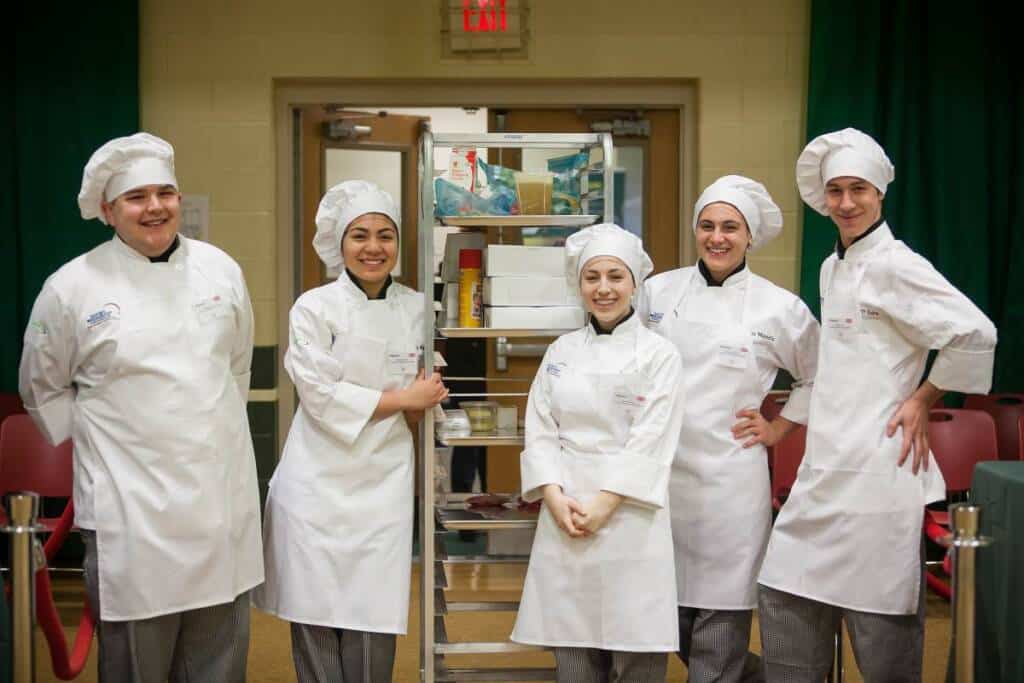
#3: Relax!
…but not too much. There is a difference between relaxed and careless. Some of the greatest competitors in the world still carry nerves into the arena with them every time they compete. However, their preparation and organizational skills allow their talents and confidence to shine when the lights turn on.
Proper preparation and organization are the keys to helping control the nerves and use that energy effectively. In fact, Chef McCue went so far as to say, “Competitors need to embrace the stress!” To be able to accomplish that can make all the difference.
Chef Mattel also encourages students to stay calm by “pretending that you are cooking for a loved one, and by being nice to your teammates. A sharp tongue under pressure will just get everyone frazzled.” Projecting negativity into the group or yourself will only derail success that much faster.
Deliberately creating obstacles and stress factors as part of your training regimen can also help control nerves. “By forcing competitors to go around stationary items like tables or rolling carts or even placing the pantry in another kitchen nearby, it creates the maximum ‘stress growth,’ thereby allowing you to excel when conditions are less difficult,” says Chef Nitahara.
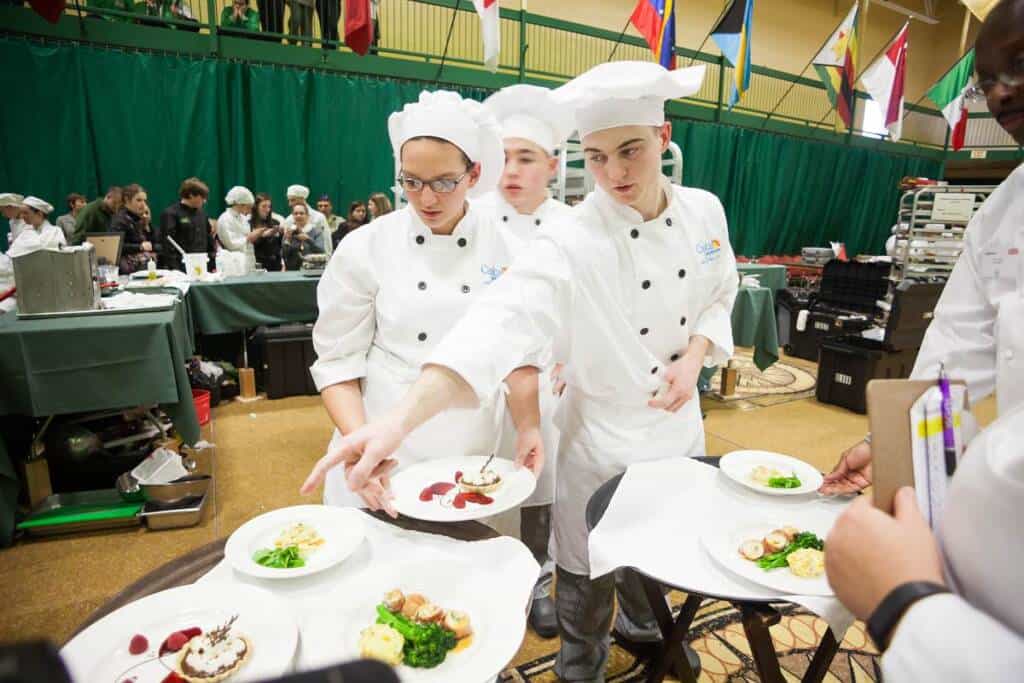
#4: Control What You Can Control
There are things in competitions you can control and things you cannot. For instance, you cannot control how other teams or individuals perform; you cannot control ultimately how your food or business concepts subjectively resonate (or not) with certain judges. But you can control being on time with your food and talking points, knowing the fundamentals of what you are doing (especially in the cooking competitions), and working cleanly and being organized as you cook or lay down silverware. And you can also make sure you know the competition rules inside and out.
The controllable areas are what ultimately weed out so many of the competitors, leaving the subjective elements—which tend to be the focus of most competitors—as relative non-factors.
Chef Nitahara encourages competitors and educators to “keep good communication with the competition directors and ask all pertinent questions about competition day early on in the training process.” This tactic will help in overall preparation, and allow the training process to be as accurate as possible. But always remember that controlling the controllable starts with preparation.
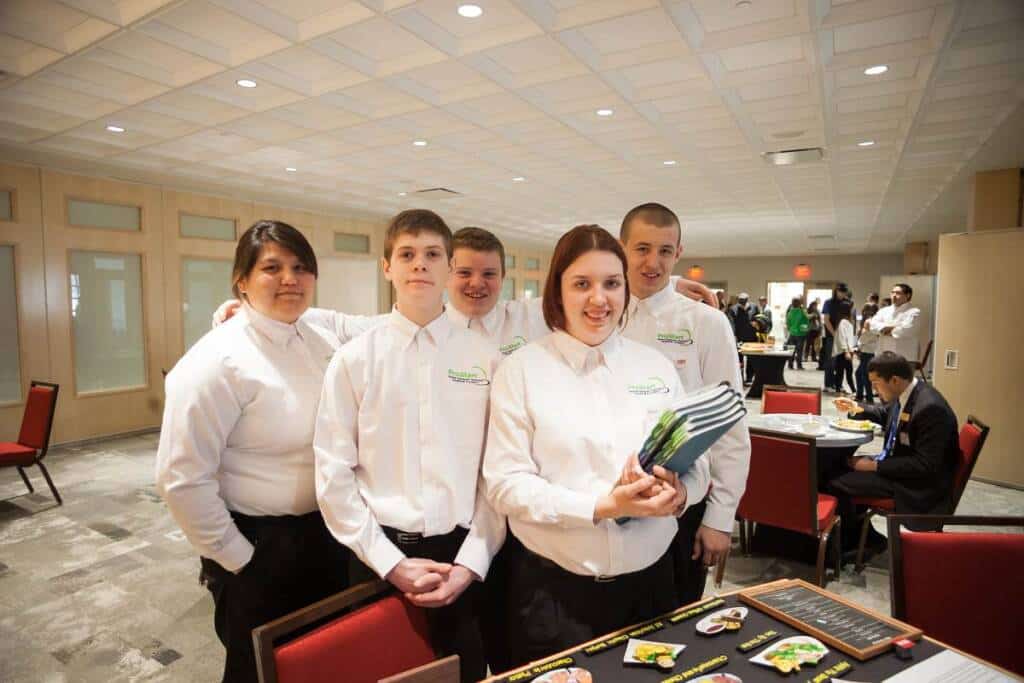
#5: Keep it Simple
“You can’t put a silk hat on a pig,” says Chef DelleRose. The food, the presentations, and the service experience all need to be authentic and genuine to have a true impact. The bright lights, loud noises, and crowds of people watching are always going to distract from that foundation. But when it comes down to the judging process, and, ultimately, the outcomes of who wins on competition day, it always boils down to keeping things controlled and simple.
The real conclusion that our faculty contributors touched on in one way or another was that, when all is said and done, there is no perfect formula to winning at these competitions. And, frankly, that is not really even the point. It is about so much more than just going through the motions and hoping to win. It’s about developing life skills that will inherently produce results. “Every day is training for some type of competition,” Chef McCue says. “I coach that every single day with my students at CIA.”
Preparing, being organized, staying relaxed, controlling what you can control, and keeping it simple—these are what build consistent success in any of life’s competitions.
So as this 2019 competition season continues to roll on, everyone at the CIA congratulates and tips their toques to all of this year’s remarkable competitors and educators. One last tip…and this one’s from me. Savor all of the experience, not just the medals, trophies, and scholarships. Savor every single bit.
By Robert Tremblay, associate director of admissions and a 2010 CIA graduate. He has judged at the state level for ProStart, SkillsUSA, and FCCLA, and at the national level for ProStart.
